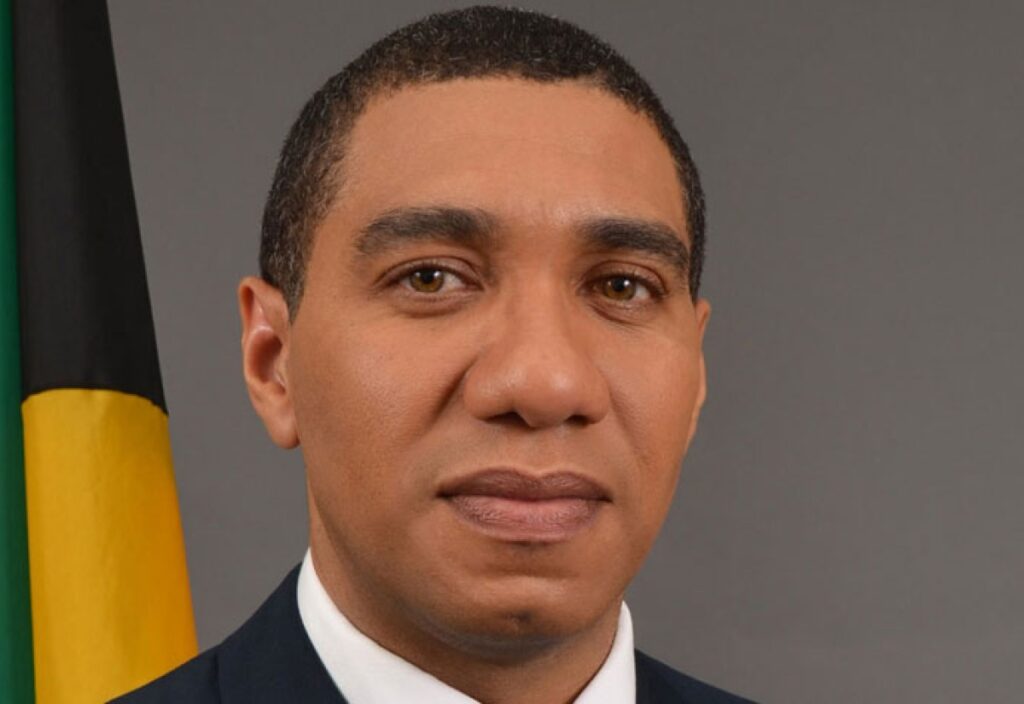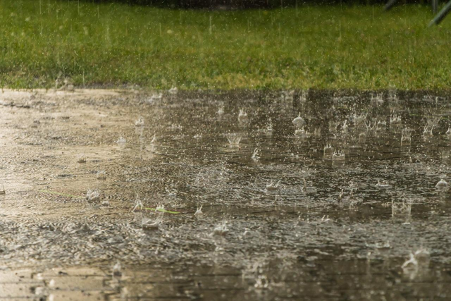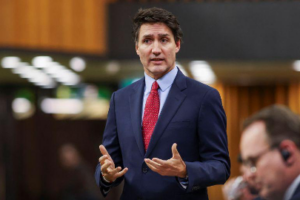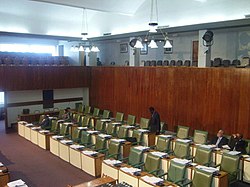While the Jamaican people joyfully beat their chests, boasting that Jamaica is the land of wood and water, this nation has been burning billions of dollars each year battling intense drought, especially across the agricultural belt.
Last year alone, the Jamaican government pumped $1 billion more into small community-based municipal water projects as the dry spell that had been dogging the nation for a number of years intensified. This billion-dollar injection was in addition to the $7 billion worth of water projects it had undertaken earlier.
Money is no match for God when he shuts up the heavens so that no rain falls and the earth becomes dust under our feet. Money is of no moment if God commands locusts to devour the land or if He sends pestilence and plague among the people. These things happen when there is a prevalence of sin. The response is not money; it is repentance.
Nearly every year, huge sums are set aside to purchase thousands of black tanks for farmers or to truck water to rain-starved communities. Plans to dam roaring rivers during intense rainy seasons have risen and fallen by the wayside, only to be resuscitated each time the persistent dry spells notch up on the Standardized Precipitation Index (SPI).
Recently, Prime Minister Andrew Holness flippantly admitted that the island had been experiencing dry spells annually, as if this should be accepted as normal and anticipated.

When the judgment of God is posited as normal and expected, it signifies that those who govern have no intention to repent or lead the people to repent from sin or to divert from the chosen course of unrighteousness.
The Prime Minister, and so many like him, seem to be oblivious to the fact that God sends the rain at His own pleasure and withholds it at His wrath. God has complete control over the winds, rains, and all the elements of the earth. Denying this truth is denying the Biblical account of creation and the power of the cross.
If the Prime Minister, who was once said to be a believer, has retreated from this position, he needs to say so. The fear of God is still the beginning of wisdom, and denying divine truth or being unmindful of the power and presence of God is the absolute way of fools.
No one would dare call Prime Minister Holness a fool, but his apparent disregard for the Word and ways of God places him squarely within the pack. Neither the Prime Minister nor his government has shown even an iota of willingness to act in any way to bring the nation to a place where the pleasure of God can bring healing, showers of blessings, and ultimate prosperity to our parched, crime-infested country consistently.
Dry spells have made significant dents in the agricultural sector, crippling food production for months at a time over the past years. Drought fuels bushfires, and increases insect outbreaks and local species extinctions, threatening the very survival of some families. The extensive and enfeebling impact of a shut sky pushes the cost of basic agricultural products beyond the reach of many ordinary folks.
The nation’s food import bill is brushing the US$1.5 billion mark annually as the government tries to shore up the food supply chain by giving greater access to overseas suppliers. Food was the third largest import into Jamaica behind oil and gas last year.
The Minister of Finance, in his budget presentation, announced the slashing of GCT from food imports. While this may bring some relief at the cash registers, it does nothing to help local farmers battling unyielding dry spells.
We can take our lessons from the importation of red peas, a most popular Jamaican staple, consumed in extremely large quantities daily with nearly every meal. Yet, the majority of red peas are imported. More than J$1.4 billion worth of red peas were imported into the island in 2021 alone, further fueling calls for the country to grow more of the food it consumes.
Our farmers compete with larger farmers in the United States, the European Union, and other countries where these producers are subsidised by their governments. Hence, this significantly reduces input costs for food producers. We import the basic ingredients of agriculture—the seeds and the fertiliser. Many of these imported seeds can only produce a single crop. They are designed that way.
In Jamaica and other parts of the Caribbean, agriculture accounts for a large chunk of the GDP (gross domestic product). In some places, it is reported that agriculture generally accounts for as high as 20% of GDP.
Last year, Jamaica saw an increase in the Goods Producing Industries, but this was due to growth in Mining & Quarrying (164.2%) and Manufacturing (3.1%).
Value added for the Agriculture, Forestry & Fishing and Construction industries saw a major decline of 8.1% and 0.7%, respectively.
Where local production falls and imported food products flood the market, help from relatives overseas in the form of remittances tends to pay the bills at the cash register for many rural families. Without this help from foreign-based relatives, many families in the farming belt would starve.
But even the money from ‘foreign’ has taken a hit. Overseas-based families have tightened the purse strings. In 2023, persons overseas sent US$3.13 billion in remittances to Jamaican families. This equated to a 2.% fall, or the largest slide in at least a decade, according to Bank of Jamaica (BOJ) data.
Interestingly, this is not just a Jamaican phenomenon. Many nations in these end times have given in to the lure of mammon and have rejected righteousness. They are facing the imprints of serious economic woes and the early onset of a terse global famine.
Some governments have sought to seed the clouds in order to force the rain to fall. Cloud seeding is a type of climate modification mechanism that aims to change weather patterns. The usual objective is to increase rain or snow. Serious concerns have been raised about silver iodide, the chemical used in the process. This chemical contaminates the air and water and can lead to health problems for humans, such as respiratory issues, skin irritation, and gastrointestinal problems. Despite its danger, cloud seeding continues to be a choice option for the wicked in governments.
The only way out of this crisis is the way of the Lord. He details His response to pervasive sin in Israel in 2 Chronicles 7:13 and provides the clear path to restoration in 2 Chronicles 7:14.
If His people, who are called by His Name, should humble themselves, and pray, and seek His face, and turn from their wicked ways, then He will hear them from heaven, forgive their sins, and heal their land.
The first responsibility of a government is to secure its people, and this can only be guaranteed by obedience to God. Prime Minister, hear this! Money cannot buy rain.






